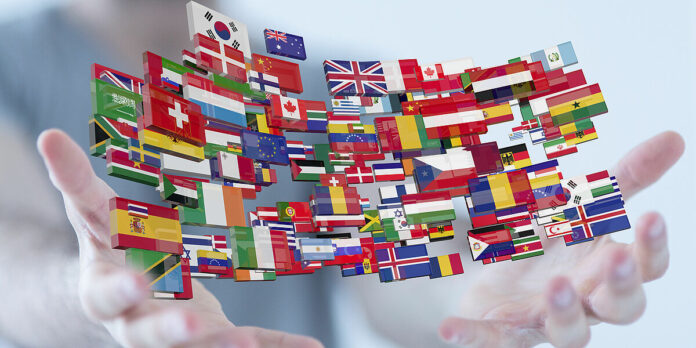International cooperation, also known as global cooperation or international collaboration, refers to the process of countries, organizations, and individuals working together to address common challenges, achieve shared goals, and promote mutual understanding and prosperity. In today’s interconnected world, international cooperation plays a crucial role in addressing complex global issues and fostering peace, stability, and prosperity for all.
The Importance of International Cooperation
Addressing Global Challenges
Many of the world’s most pressing challenges, such as climate change, poverty, terrorism, and pandemics, transcend national borders and require coordinated global efforts to address effectively. International cooperation enables countries to pool their resources, expertise, and knowledge to tackle these challenges collectively and find sustainable solutions.
Fostering Peace and Stability
International cooperation plays a vital role in preventing conflicts and promoting peace and stability in regions around the world. By fostering dialogue, building trust, and promoting mutual respect and understanding, countries can resolve disputes peacefully and work together to build a more secure and prosperous future for all.
Promoting Economic Development
International cooperation is essential for promoting economic development and reducing poverty in developing countries. By promoting trade, investment, and technology transfer, countries can create opportunities for growth and prosperity and improve the quality of life for people around the world.
Examples of International Cooperation
United Nations (UN)
The United Nations is a prime example of international cooperation, bringing together member states from around the world to address global challenges such as peace and security, human rights, and sustainable development. Through its various agencies, programs, and initiatives, the UN plays a central role in promoting peace, advancing human rights, and addressing humanitarian crises.
World Health Organization (WHO)
The World Health Organization is another example of international cooperation, working to promote global health and well-being through research, policy development, and capacity building. During public health emergencies such as pandemics, the WHO coordinates international efforts to control the spread of disease and ensure access to essential medical supplies and services.
European Union (EU)
The European Union is a regional organization comprising 27 member states that cooperate in various areas such as trade, economic integration, and security. Through its common policies and institutions, the EU promotes peace, stability, and prosperity in Europe and beyond, serving as a model for regional integration and cooperation.
Benefits of International Cooperation
Shared Resources and Expertise
International cooperation allows countries to pool their resources, expertise, and knowledge to address common challenges more effectively than they could alone. By sharing best practices, collaborating on research and development, and coordinating efforts, countries can achieve greater impact and maximize the use of limited resources.
Enhanced Diplomatic Relations
International cooperation fosters positive diplomatic relations between countries, building trust, and goodwill and reducing the risk of conflicts. By engaging in dialogue, negotiation, and collaboration, countries can resolve disputes peacefully and build strong, mutually beneficial partnerships.
Increased Cultural Understanding
International cooperation promotes cultural exchange, mutual respect, and understanding between people from different countries and backgrounds. By working together on common goals and projects, countries can bridge cultural divides, break down stereotypes, and promote a sense of global citizenship and solidarity.
Challenges in International Cooperation
Political Tensions and Conflicts
Political tensions and conflicts between countries can impede international cooperation and hinder progress on shared goals. Disagreements over issues such as territorial disputes, human rights, or ideology can strain diplomatic relations and make it difficult to find common ground.
Economic Disparities
Economic disparities between countries can create challenges for international cooperation, as wealthier countries may be reluctant to share resources or support development initiatives in poorer countries. Addressing these disparities requires a commitment to equitable and inclusive growth and cooperation.
Sovereignty Concerns
Concerns about national sovereignty and autonomy can sometimes limit countries’ willingness to engage in international, particularly if they perceive it as a threat to their sovereignty or national interests. Finding ways to respect and accommodate these concerns while promoting cooperation is essential for building trust and consensus.
Strategies for Promoting International Cooperation
Diplomacy and Negotiation
Diplomacy and negotiation are essential tools for promoting cooperation and resolving conflicts peacefully. By engaging in dialogue, building trust, and seeking win-win solutions, countries can overcome differences and find common ground on shared issues.
Multilateral Agreements and Treaties
Multilateral agreements and treaties provide a framework for countries to cooperate on specific issues and address common challenges collectively. By ratifying and implementing these agreements, countries can commit to shared goals and principles and hold each other accountable for their commitments.
Public-Private Partnerships
Public-private partnerships (PPPs) bring together governments, businesses, and civil society organizations to collaborate on projects and initiatives that promote sustainable development and address pressing global challenges. By leveraging the strengths and resources of multiple stakeholders, PPPs can achieve greater impact and sustainability than traditional approaches.
Conclusion
International is essential for addressing global challenges, promoting peace and stability, and fostering prosperity and well-being for all. By working together, countries, organizations, and individuals can harness the power of collective action to create a better world for future generations.




